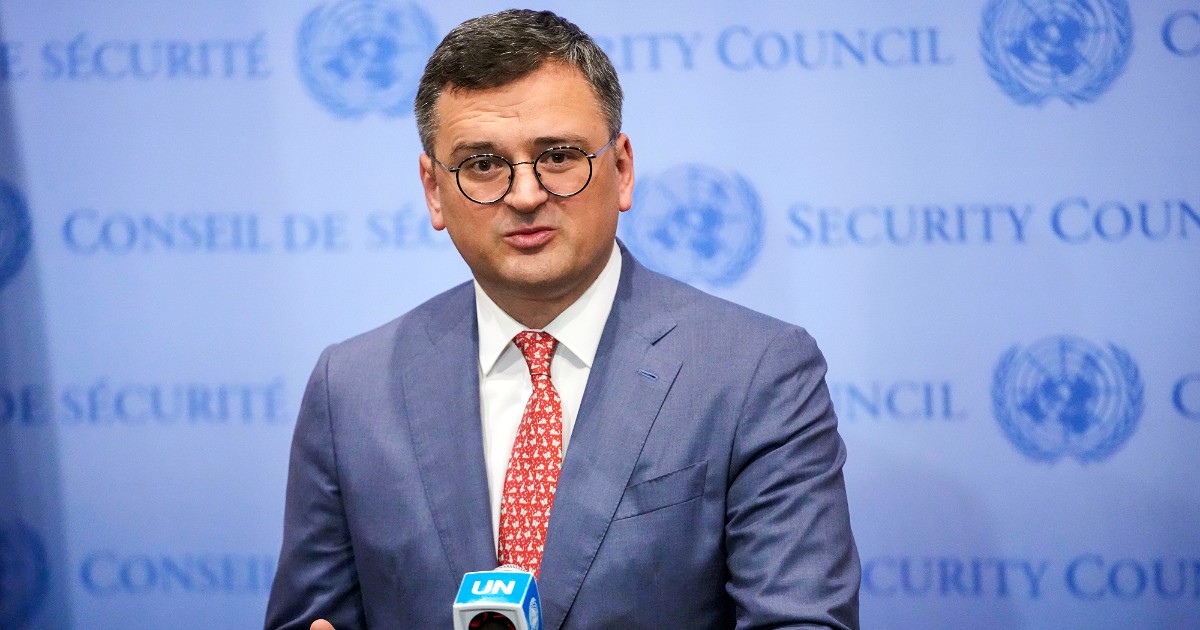“Putin e Zelensky they will never sit at the same table to discuss peace”. The Ukrainian Foreign Minister is lapidary, Dmytro Kulebain an interview with the Corriere della Sera. Not only will a dialogue between Mosca e Kiev without the withdrawal of Russian troops from the country, as repeated dozens of times by the Ukrainian establishment, but this, eventually, will necessarily have to take place through the mediation of other powersas happened, for example, for the agreements on wheat: “They are needed imaginative solutions – declared the head of diplomacy – For our part, we can no longer trust the Russian president”. But when asked about the Vatican peace proposalcut short: “I see no news. But the Pope’s invitation to Ukraine remains valid”.
Statements that are a clear message for two other actors in particular: the Türkiyewhich after the agreement on the export of Ukrainian wheat is trying to re-propose itself as a mediator, and above all the Chinesecountry that in the last Jeddah summitin Saudi Arabiareiterated the importance of principle of territorial integritywhile remaining friends with Moscow and maintaining some influence over it.
“We are no longer willing to negotiate directly with Putin. THE crimes committed since the beginning of our country’s aggression are too serious for us to sit at the same table. Absolutely, we don’t trust him. However, third-party mediation is possible,” the Ukrainian foreign minister specified. The ball then passes into the hands of the powers most involved, directly or indirectly, in the conflict that erupted a year and a half ago and the minister says he has no intention of being subjected to pressure from those who, even on the western front, believe that without a breakthrough in counteroffensive a negotiating table will have to be reached by the end of the year. “The counteroffensive progresses slowlybut continuously. The biggest problems are the strong defensive positions erected by the Russians over the past year. It’s not easy for our soldiers to advance. But we will make it ”, he replies, taking la as an example Battle of Monte Cassinoduring the Second World War, won by the allies after 4 months of fighting.
However, Kuleba judges Beijing’s presence at the Jeddah summit positively: “It was essential that China was at the summit, a positive political message. Present at a multilateral meeting where the Ukrainian peace plan was discussed. Even if now we don’t expect dramatic changes. And we also understand the special relationship between Moscow and Beijing. This requires a very delicate diplomacy to ensure that China remains on the side of Ukrainian peace and territorial integrity”. And on the hypothetical shipment of Chinese weapons to Moscow, the minister is cautious: “Up to now we have never seen the shipment of Chinese weapons to Russia. And let’s hope that doesn’t change, even though we are aware that Moscow is very interested in Chinese weapons. We know of Chinese industries that export components used by the Russian war industry, a smaller flow. We share this information with the Chinese government, hoping it will take action.”
Inevitably, the future of the conflict will also be influenced by american elections. In case of victory of Trumpat least according to what was declared by the tycoonthe US line would radically change, with the search for one quick peace with Moscow. This is what Vladimir Putin hopes for, but the head of Kiev’s diplomacy glosses over this: “We are moving forward. Putin has been counting on someone’s elections since 2014, but the results have never helped him. I keep thinking that the time factor be an ally to us for the simple fact that our military capabilities are growing, Russia’s are decreasing. Trump? We’ll see”.
But to start peace talks remotely, he argues, you don’t need a regime change in Moscow: “We can negotiate with Russia after the withdrawal of their troops from our lands, but not with Putin. This objective can be achieved with a mixture of warfare and diplomacy. Our generals deal with the former, their job is to push the Russians to retreat and understand that talking is better than fighting. I take care of diplomacy and dialogue when possible “.
